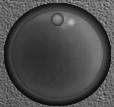 |
|||||
 |
 |
||||
Electric Surface Heating | ||
 |
|||||
 |
 |
||||
Electric Surface Heating | ||
Commencing in 1991 from one of the pioneering company's
in the origination and development of Electric Trace Heating in the UK.
The three
partners of Resistance Technology Ltd were previously senior managers with
Thomas French & Sons (Electrical) Ltd prior to that company withdrawing as a
market leader from the industry in 1990. For further information about
Resistance Technology click here.
What is Electric Surface Heating?
Electric Surface Heating
(also know as Electric Trace Heating ) can be described as the application of
heat to the surface of any vessel, container or apparatus for the processing,
storage or conveyance of any product or substance at a predetermined
temperature.
In general terms, Electric Surface Heating falls into two
categories :-
A. Freeze Protection, where a vessel,
container or pipework is maintained at a temperature which will prevent the
enclosed product from freezing at low ambient temperatures. Typical applications
include the frost protection of water services and the freeze prevention of
caustic soda solutions.
B. Process Heating, where the
enclosed product or material has to be maintained at an elevated temperature to
permit handling, transportation or processing. Typical applications include the
temperature maintenance of pipework carrying heavy grade fuel oil, various
chemical products, glues, resins, etc and products used in the food industry
such as glucose, chocolate, fats, etc.
Electric Surface Heating may also
be used for the prevention of condensation, for example when handling dust or
powder products in storage hoppers .
Generally Electric Surface Heating
is required to compensate for the heat losses which would otherwise occur due to
the temperature differential between the required product temperature and the
minimum ambient air temperature. However in certain limited circumstances,
surface heating may also be used to raise the temperature of the product to that
necessary for subsequent processing operations.
Electric Surface Heating
replaces the heat where it is being lost and compared with other heating methods
(such as immersion heaters) it can be easily installed without the necessity of
breaking into pipework or vessels. For certain applications, for example the
heating of long lengths of pipework (Electric Trace Heating , traces the tape
around the pipework ), surface heating may be the only practicable method of
providing the required heat output .
It is true to say that Electric
Surface Heating and Electric Trace Heating can be found in all industrial areas including :
---
general engineering
--- chemicals and petrochemicals
--- oil
processing
--- electricity generation
--- food industry
---
refrigeration
The term "electric surface heating" also includes so-called "electric
trace
heating"which is derived from the practice of running a heat source along the
length of a pipeline (thus tracing the pipeline).
Tel +44 (0)161 877 7345: Fax +44 (0)161 877 8711
for all your electric
surface heating requirements